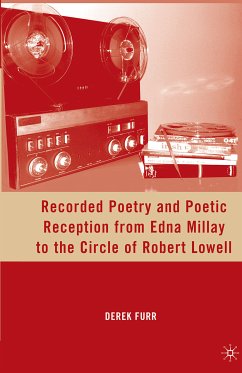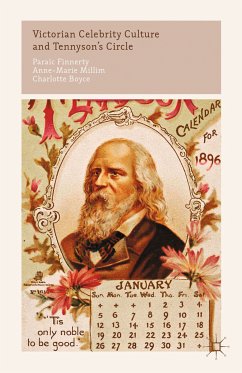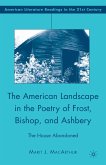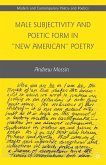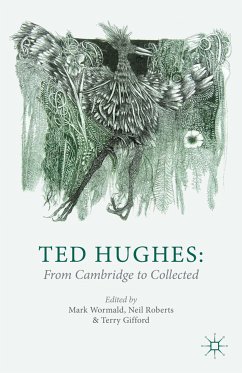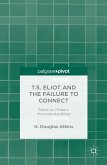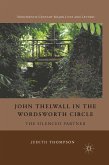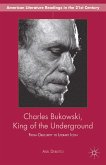Dieser Download kann aus rechtlichen Gründen nur mit Rechnungsadresse in A, B, BG, CY, CZ, D, DK, EW, E, FIN, F, GR, HR, H, IRL, I, LT, L, LR, M, NL, PL, P, R, S, SLO, SK ausgeliefert werden.
"This book vastly enriches our understanding of an underappreciated resource: the audio archive of modernist and mid-century poetry. Poetry's persistent appeal to the ear requires one to ponder not only how poets voice their work but how and why we preserve those voicings. Furr's lively study provides answers through, for example, Robert Lowell's canon-forming efforts to build an audio archive at the Library of Congress, the ethnographic field recordings of James Weldon Johnson, and the 'aesthetic of the beautiful throat' in performances by Edna St. Vincent Millay and Anne Sexton. Furr's timely intervention teaches us how to think about the event of recording and the experience of listening - and no other book on the market moves so knowledgeably, fluently, and usefully between recording technology and its implications for poetry as an art of the page, the studio, and the stage." - Lesley Wheeler, Professor of English, Washington and Lee University and author of Voicing American Poetry: Sound and Performance from the 1920s to the Present

